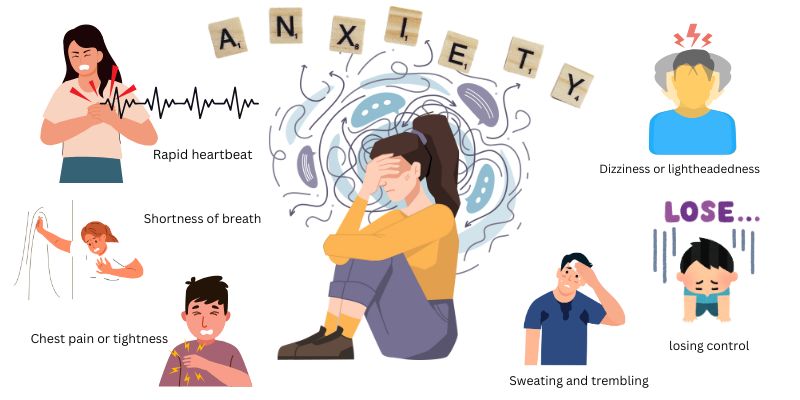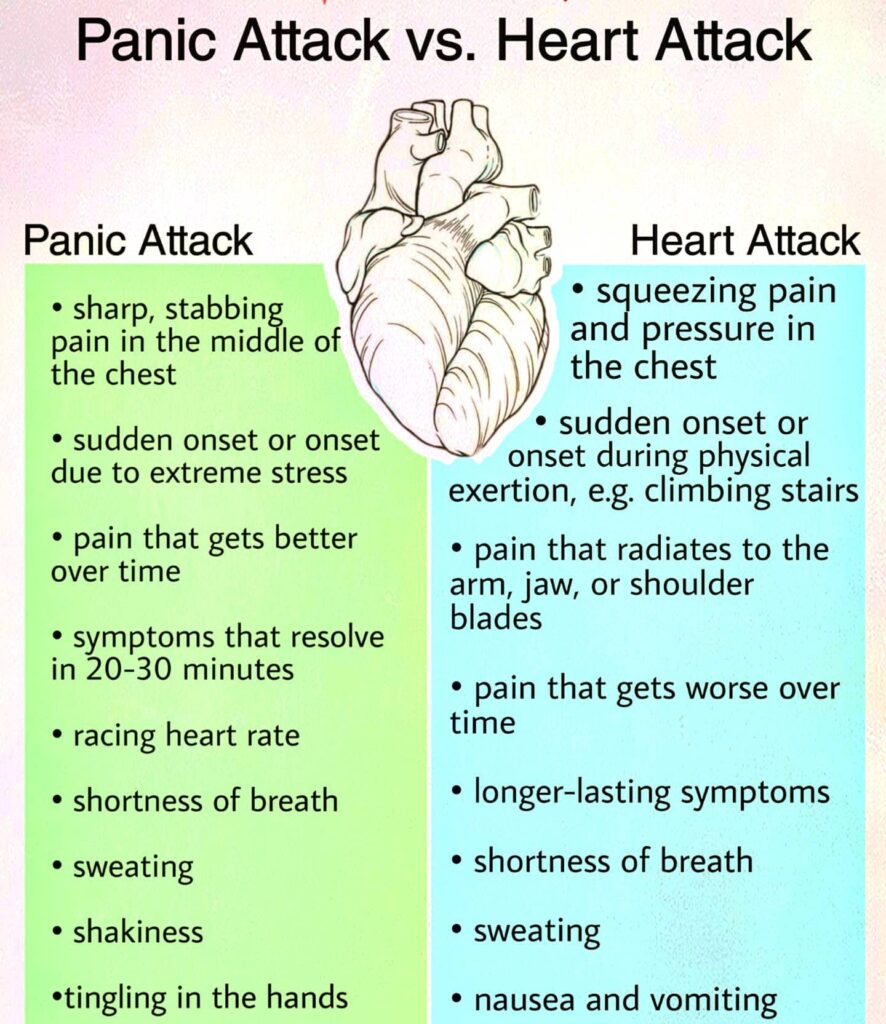Anxiety attacks, medically termed panic attacks, are sudden, intense episodes of fear or discomfort. They are characterized by symptoms that can mimic severe medical conditions like heart attacks, leading many to wonder, “Are anxiety attacks dangerous?” The straightforward answer is NO—They Are Not Life-Threatening. However, their physical and psychological effects should not be overlooked. This article examines the facts about anxiety attacks, their impact on health, and evidence-based strategies for management.
What Is an Anxiety Attack?
An anxiety attack is a sudden episode of intense fear or discomfort, typically accompanied by physical symptoms such as:

- Rapid heartbeat (tachycardia)
- Shortness of breath
- Chest pain or tightness
- Dizziness or lightheadedness
- Sweating and trembling
- A feeling of losing control or impending doom
These episodes often peak within 10 minutes and resolve within 30 minutes to an hour. While these symptoms can mimic life-threatening conditions like heart attacks, they are rooted in the body’s stress response rather than a physical illness.
Are Anxiety Attacks Life-Threatening?
Anxiety attacks are not dangerous in the medical sense—they do not cause permanent damage to the body or organs. However, they can still have a significant impact

Physical Impacts
Frequent anxiety attacks can lead to chronic stress, which is associated with conditions such as:
- High blood pressure
- Sleep disturbances
- Weakened immune function
Psychological Impacts
The fear of experiencing future attacks can lead to avoidance behaviors, such as staying away from social events, workplaces, or crowded spaces. This avoidance can escalate into agoraphobia or other anxiety disorders.
Mimicking Serious Conditions
One of the most distressing aspects of anxiety attacks is their similarity to symptoms of critical conditions, such as:
- Heart attacks
- Asthma attacks
- Neurological issues
This resemblance often results in unnecessary emergency room visits, creating additional stress and financial strain.
What Causes Anxiety Attacks?
A combination of biological, psychological, and environmental factors triggers anxiety attacks. Research identifies the following common causes:
- Stress: Prolonged exposure to stress at work, home, or in relationships.
- Genetics: Family history of anxiety or panic disorders.
- Brain Chemistry: Imbalances in neurotransmitters like serotonin and norepinephrine.
- Medical Conditions: Thyroid disorders, low blood sugar, or cardiovascular issues.
- Lifestyle Factors: Excessive caffeine, poor diet, and lack of sleep can exacerbate anxiety.
How to Manage Anxiety Attacks
While anxiety attacks are not physically dangerous, managing them effectively is critical to improving quality of life. Evidence-based strategies include:
Immediate Coping Techniques
- Breathing Exercises: Deep, controlled breaths can reduce hyperventilation and calm the nervous system.
- Grounding Techniques: Focus on your surroundings or engage your senses to divert attention from anxious thoughts.
- Positive Reassurance: Remind yourself that the attack is temporary and not harmful.
Long-Term Management
- Therapy:
- Cognitive Behavioral Therapy (CBT) is highly effective for anxiety disorders. It helps individuals identify and challenge thought patterns that trigger anxiety.
- Medication:
- SSRIs (Selective Serotonin Reuptake Inhibitors): Commonly prescribed for long-term management.
- Benzodiazepines: Used for short-term relief under medical supervision.
- Lifestyle Modifications:
- Regular physical activity can reduce stress hormones and improve mood.
- A balanced diet, with limited caffeine and sugar, supports mental stability.
- Mindfulness and meditation techniques promote relaxation and focus.
What does a silent anxiety attack feel like?
When to Seek Medical Attention
Although anxiety attacks themselves are not dangerous, certain scenarios warrant medical evaluation:
- Uncertainty about symptoms: If symptoms closely resemble those of a heart attack or serious condition.
- Prolonged attacks: If symptoms persist beyond an hour or worsen over time.
- Interference with daily life: When anxiety attacks prevent normal functioning or social interactions.
Key Facts About Anxiety Attacks
- Anxiety attacks peak within 10 minutes and are typically resolved in 30 minutes to an hour.
- While not dangerous, they can mimic serious conditions like heart attacks, leading to unnecessary hospital visits.
- Chronic anxiety may contribute to stress-related physical health issues if left unmanaged.
- Effective management includes therapy, medication, and lifestyle changes.
How to Deal with Financial Stress
Conclusion
The question, “Are anxiety attacks dangerous?”, is one of perception rather than reality. Anxiety attacks feel intense and alarming, but they are not life-threatening. However, their psychological and emotional impact can be profound, especially if they occur frequently or are left untreated.
Understanding the nature of anxiety attacks and implementing evidence-based strategies can significantly improve quality of life. If you or someone you know is struggling with anxiety, seek professional help to explore tailored treatment options.
For further resources, read about Effective Stress Management Techniques or explore CBT as a Proven Therapy for Anxiety.



